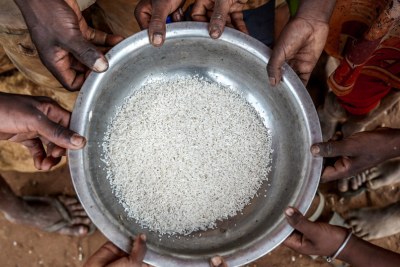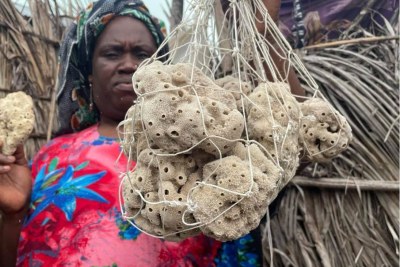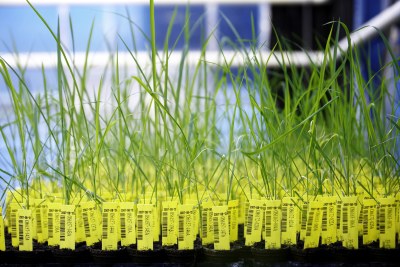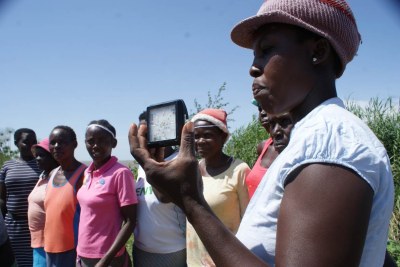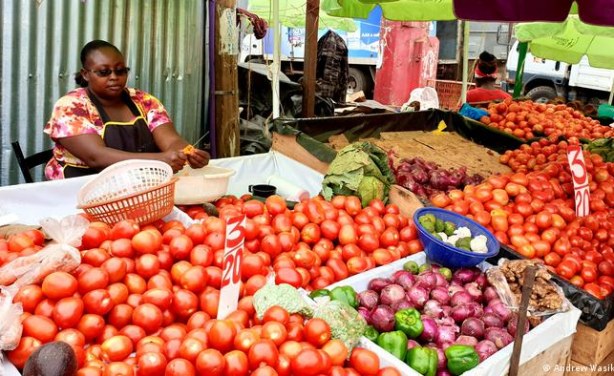-
Africa: How to Put Women At the Centre of Continent's Food Systems
The Conversation Africa, 19 August 2021
The number of hungry people in the world grew by a staggering 161 million people in 2020 to 811 million. More than one third of these people live in Africa. One of the main reasons… Read more »
-
Malawi: Mchinji Envisions 50 Percent Malnutrition Reduction By 2030
Nyasa Times, 19 August 2021
Stakeholders at the recent district independent food systems dialogue meeting in Mchinji resolved to implement various initiatives and programmes that would contribute to the… Read more »
-
Southern Africa: SADC - First Lady Calls for Special Attention to Women
ANGOP, 17 August 2021
Angola's first lady Ana Dias Lourenço Tuesday spoke of the need to pay greater attention to women and girls in the Southern African Development Community (SADC), protecting… Read more »
-
South Africa: Food Not Bombs Jozie - Help the Collective to Feed the Destitute
Daily Maverick, 17 August 2021
A group of food activists is providing a lifeline by feeding the vulnerable from abandoned and destitute communities in Johannesburg and is inviting greater South Africa to help… Read more »
-
South Africa: Minister Thoko Didiza - the Role of Women in Agriculture
Govt of SA, 12 August 2021
Remarks delivered by Minister Thoko Didiza on the occasion of a webinar on The Role of women in Agriculture Read more »
How to Position Women at the Centre of Africa's Food Systems
The number of hungry people in the world grew by a staggering 161 million people in 2020 to 811 million. More than one third of these people live in Africa. One of the main reasons for this increase is the COVID-19 pandemic, coupled with the cost of healthy diets and high levels of income inequality.
More concerted efforts are needed to address the problem of food security. Empowering women is often said to be the key. In the past, researchers have looked to their specific disciplines to suggest how women could be empowered to improve food security.
Some have focused on increasing women's income because women spend more of their income on household nutrition. Others have focused on providing women with nutrition education because women carry the primary responsibility for preparing food.
Globally, experts are beginning to recognise that focusing on one aspect of food overlooks the trade-offs or sacrifices people make. For example, women's economic empowerment may mean that they spend more time on economic activities, and less time preparing food.
Eliminating hunger will require that research and policies empower women to participate effectively in the food system. Research or policies that focus on one discipline will not suffice to achieve this goal. It's also essential to understand what gender policy actions can be taken, writes Elizabeth Mkandawire and Melody Mentz-Coetzee for The Conversation.
InFocus
-
A week ago, a dark cloud of desert locusts floated over the city of Hargeisa, the capital of Somaliland. For more than 40 minutes the moving swarm of locusts covered the city in ... Read more »
-
The United Nations is warning that global hunger is increasing and that urgent action is needed to stave off famine and death over the coming months in nearly two dozen unstable, ... Read more »
-
Nasir Hassan Haji alongside 12 other women in Jambiani village on the Indian Ocean coast, never thought of themselves as farmers or swimmers, but they have had to learn to swim for ... Read more »
-
The Director-General/Chief Executive Officer of the National Biosafety Management Agency (NBMA), Rufus Ebegba, said his agency is working to ensure that only safe ... Read more »
-
Sex-for-fish deals are common in Lake Victoria's fishing industry, which is controlled by men who can afford the tools needed to catch fish, including the lights used to attract ... Read more »

